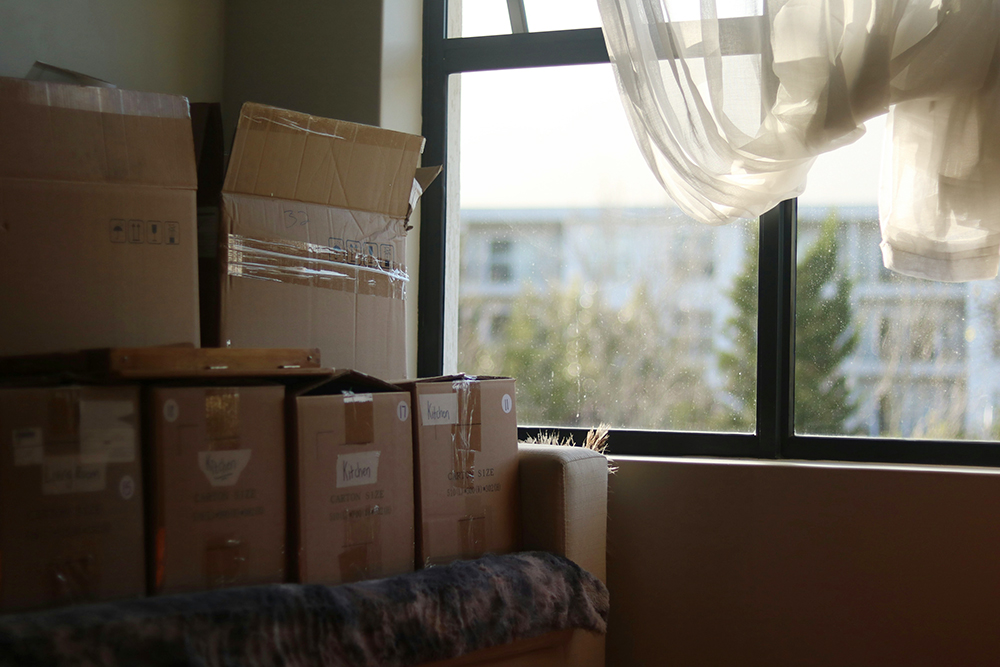
(Unsplash/Tierra Mallorca)
One of my congregation's lay collaborators used to call summer "nun migration season." She oversaw the cars and always had to figure out which sister was in which car and where she lived.
If you think about it, summertime is often full of transitions. Children complete a school year and announce with pride they are now in the next grade. Others graduate from high school or college and face new adventures — moving, a new job, a new school. Summer is also wedding season, and weddings are profound times of transition.
Even good transitions bring up anxieties. Saying yes to something new and wonderful usually means saying goodbye to things, people and routines that are familiar. It can be a paradox of joy and anxiety, looking forward to new possibilities and reflecting on the things that have been. Beginnings entail endings.
For me, summertime has long been a time of mixed grief and joy. School was a happy place for me as a kid, and summer meant its absence. I found it lonely. I missed my friends.
Advertisement
Summer still carries the echo of those lonely times, even though it looks very different now. It still often carries transition. As a younger member of an apostolic religious order, I've moved 10 times since I entered the congregation 15 years ago. Even though I am beyond the moves required by the different experiences of religious formation, I still find that my life is a bit itinerant. And so, after moving across the country three years ago, I find myself moving across town this summer.
The physical transition of moving belongings is a hassle. Yet, the non-physical parts of transitions can be even more challenging. When I moved to San Diego from St. Louis, I said goodbye to longtime friends without knowing when I would see them again. I left behind a job I knew well for a ministry with yet unknown newness. The sisters I lived with in St. Louis were not coming with me, and the new community was different. The prospect of living in the new was exciting to me — and it also produced a bit of anxiety. Transitions always do.
Jesus showed us how to live in a way that allows us to follow God without being held back by other things. We know the phrases that go with the freedom to follow in his footsteps: "it is easier for a camel to pass through the eye of a needle than for a wealthy person to enter the kingdom of God" (Luke 18:25), "foxes have dens … but the Son of Man has nowhere to rest his head" (Matthew 8:20), and the enigmatic "if any one comes to me without hating his father and mother, wife and children, brothers and sisters, and even his own life, he cannot be my disciple" (Luke 14:26). Each of these phrases needs its own unpacking (sometimes Jesus talks in hyperbole), but ultimately, they show us that following Jesus should take top priority in our lives. And in my commitment as a woman religious, I was affirming that I long to live in this way.
Saying yes to something new and wonderful usually means saying goodbye to things, people and routines that are familiar.
Following Jesus means doing whatever we can to adopt his attitude of putting God's will first. Remember the encounter with the rich man who went away sad when Jesus told him the next step on his spiritual journey was to "sell all that you have and distribute it to the poor, and you will have a treasure in heaven. Then come, follow me" (Luke 18:22). He had many things, and Jesus urged him to let go of them. They were getting in the way of him becoming a disciple.
Ignatian spirituality expresses this re-prioritizing as "detachment." Detachment in this sense means having an interior freedom that keeps us available and ready to serve God. To me, it means holding lightly onto the things and people in my life so that I don't let my own anxieties about losing them get in the way of God working in and through me. It does not mean that I love people less or live with absolutely nothing.
It seems to me that the most important message here is not about what we have to give up, but more about what we have to gain. Putting our attention and energy on what is life-giving doesn't diminish the challenge of letting go of how-things-were, but it does help us recognize the importance of acting fearlessly in the way God calls us.

(Unsplash/Alicia Christin Gerald)
Hope for a better world and for union with God is central to our Christian faith. In that hope is a recognition that we will never be completely fulfilled in this world, but that we are constantly longing for God and trying to live as God is calling us. Perhaps even more importantly, we strive to recognize that God's providence is abundant and trustworthy. Letting go of the things that make me feel comfortable is opening greater space for God to fill it with goodness and light.
Anxiety around change is real. And at the same time God works in us through transitions. This summer, moving gives me a chance to pause and consider how attached I am to material things and to remember what's most important to me. It's not the clothing or the books, but the relationships, the love and the ability to use the generous gifts God has given me for the good of the world around me.
As Jesus reminds his disciples, he also reminds us that "there is no one who has given up house or wife or brothers or parents or children for the sake of the kingdom of God who will not receive [back] an overabundant return in this present age and eternal life in the age to come" (Luke 18:29-30).
Whether the summer offers major transitions or just the ordinary change of seasons, may we be able to relax our anxieties and allow ourselves to rest in God's generous care.







